7 Plants Wasps Hate But Bees Adore – For A Pollinator Garden That's Buzzing, Not Bothered
Create a bee-friendly, wasp-free garden with these smart planting choices that keep pests at bay while nurturing precious pollinators.

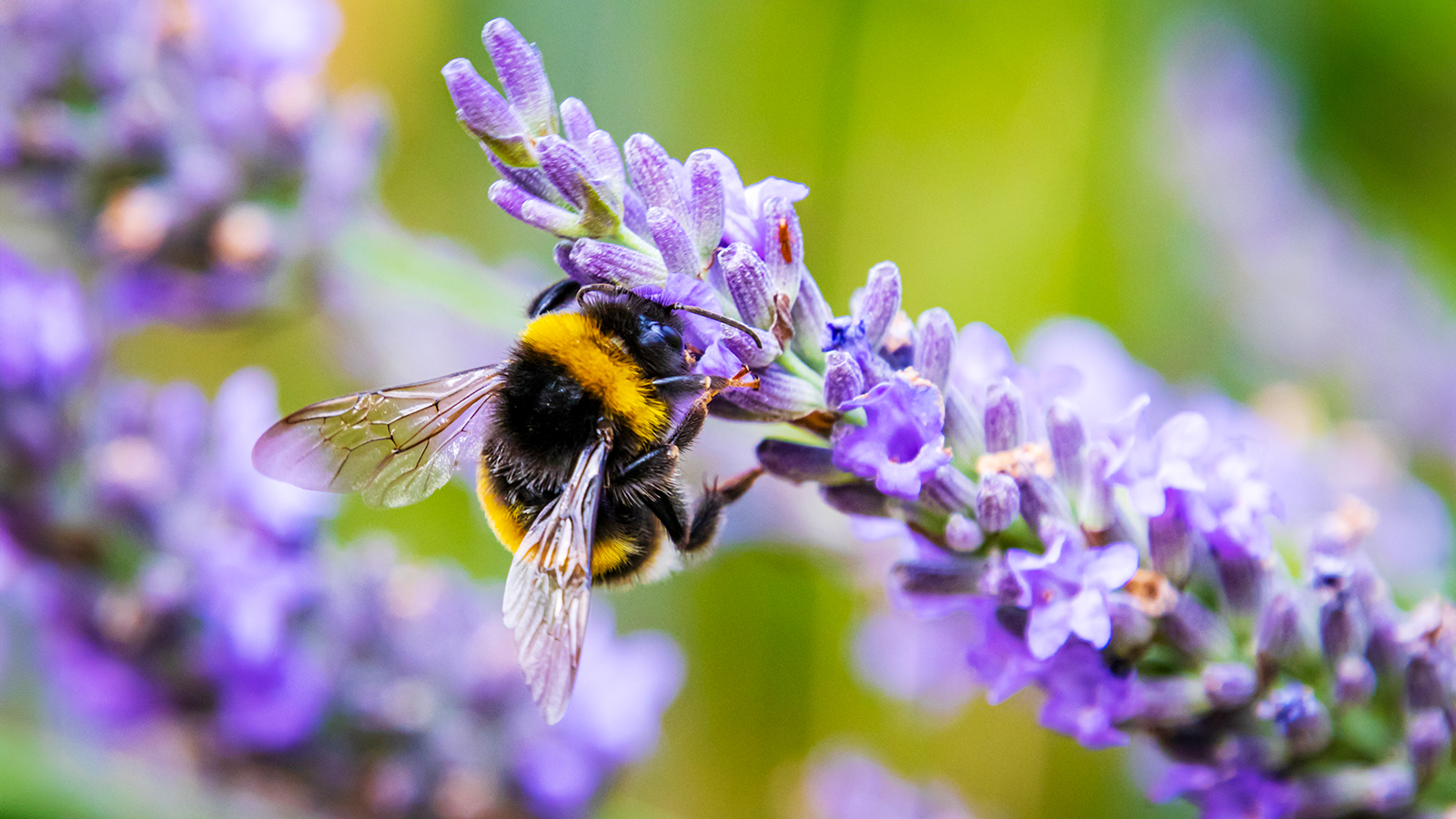
Most gardeners want to support pollinators, but not all pollinators are ideal garden companions. While both bees and wasps can sting, wasps tend to sting more readily and multiple times. Their stings can also be more painful. Yellowjackets are particularly aggressive and dangerous.
The best control measures are multi-pronged. Prevent wasps in your area by keeping the garden clean. Don’t leave food out or let the recycling and garbage cans get messy. Use repellants, like peppermint oil, and hang specially designed wasp traps. If you find a wasp nest, consider hiring a professional to remove it.
It's also a good idea to make your garden more bee-friendly. Provide pollinator drinking stations by placing Bee Cups around your garden, limit the use of harmful pesticides, and include a range of native plants in beds and borders.
Plants that attract and support bees but deter wasps can also help you manage a tricky balance. While it’s not a perfect solution, choosing plants wisely can help you see more bees and fewer wasps while enjoying your garden. None of these are foolproof ways of deterring one insect and attracting the other, but they can help shift the balance.
1. Mint
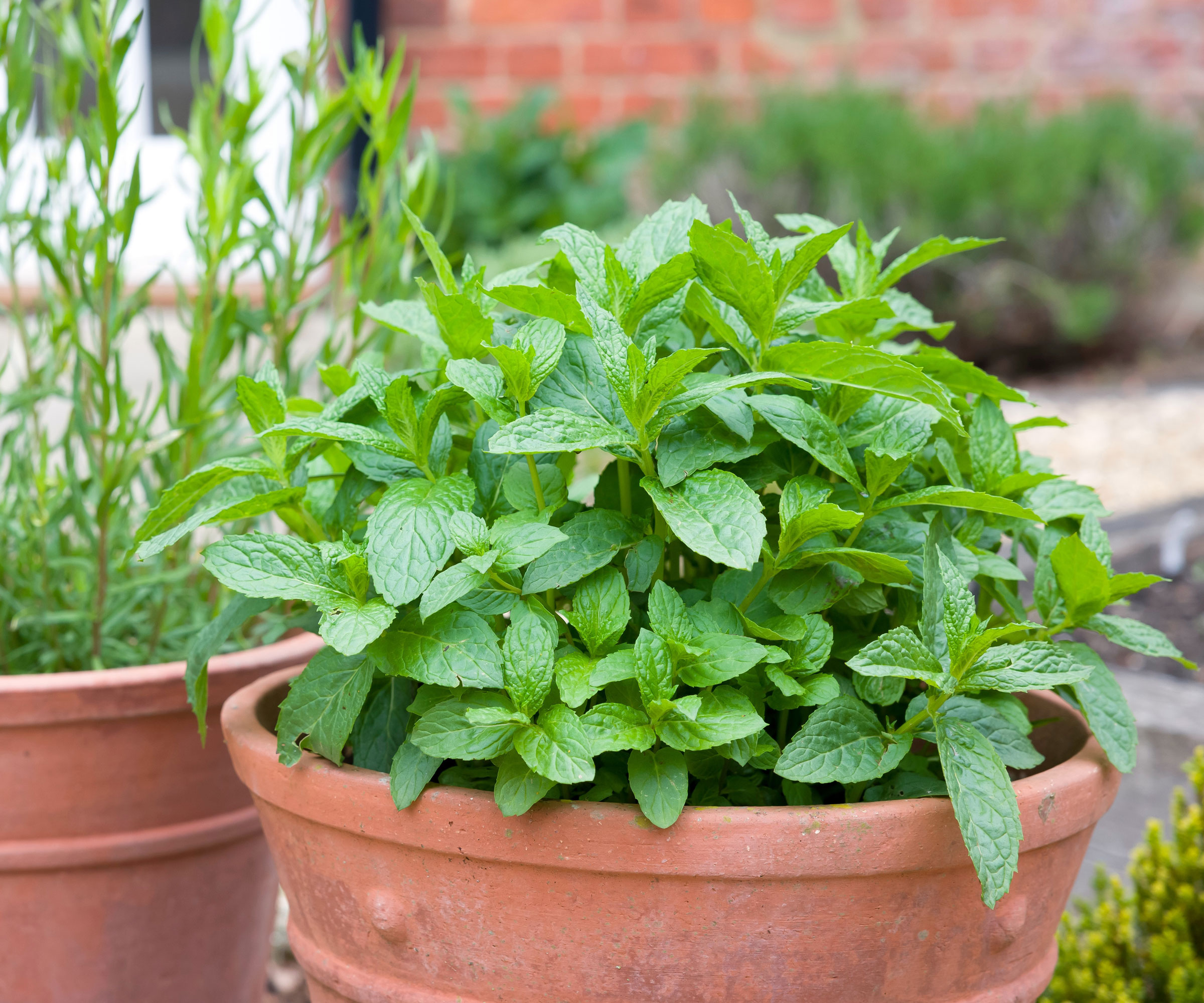
Certain strong-smelling herbs deter wasps but don’t seem to bother bees. These include mint. Peppermint oil can be a good deterrent, but you can also grow mint plants from seed. Peppermint and spearmint are great choices. The lesser-known pennyroyal is another good, fragrant herb.
Keep in mind that mint plants are aggressive growers. They will rapidly take over a bed if you plant them in the ground. For better control, grow mint in containers like these VIVOSUN 5 Gallon Grow Bags from Amazon that can be easily moved around. Mint thrives in USDA hardiness zones 4 through 9 and is very easy to grow in full sun or even partial shade.
2. Lavender
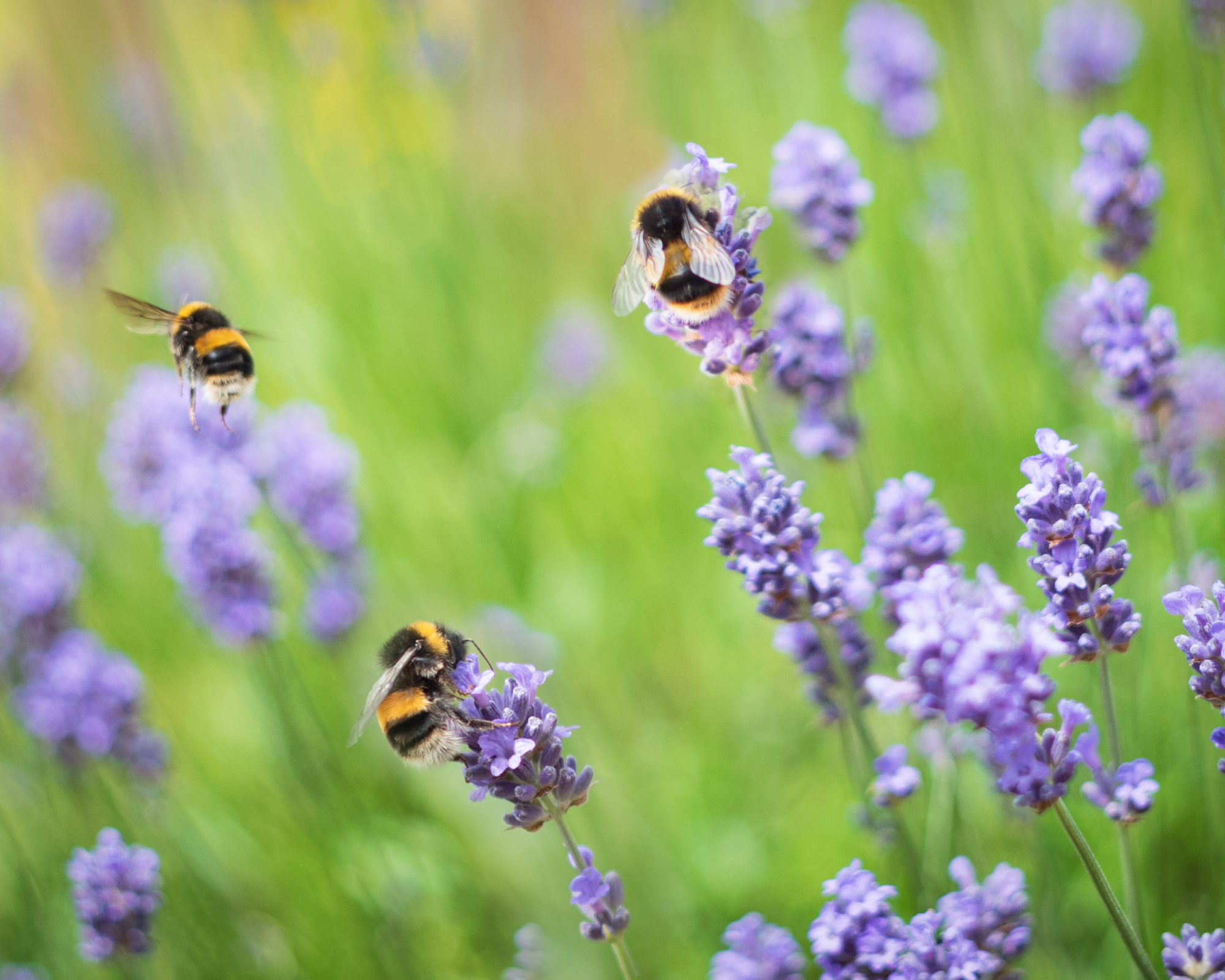
Another herb with a potent aroma that wasps aren’t crazy about, lavender is a draw for many bees. Once in bloom, you should see plenty of bees buzzing around and collecting nectar. Lavender in planters or beds around your seating area is a good way to manage wasps while attracting bees.
Sign up for the Gardening Know How newsletter today and receive a free copy of our e-book "How to Grow Delicious Tomatoes".
Lavender is easy to grow if you have a nice sunny spot for it. It thrives in full sun and hot, dry weather, making it an ideal summer patio plant. Phenomenal Lavender, from Burpee, is one of the hardiest varieties going. You can also grow lavender in beds or as low hedges and borders. The soil must drain very well, as it will not tolerate soggy roots.
3. Rosemary
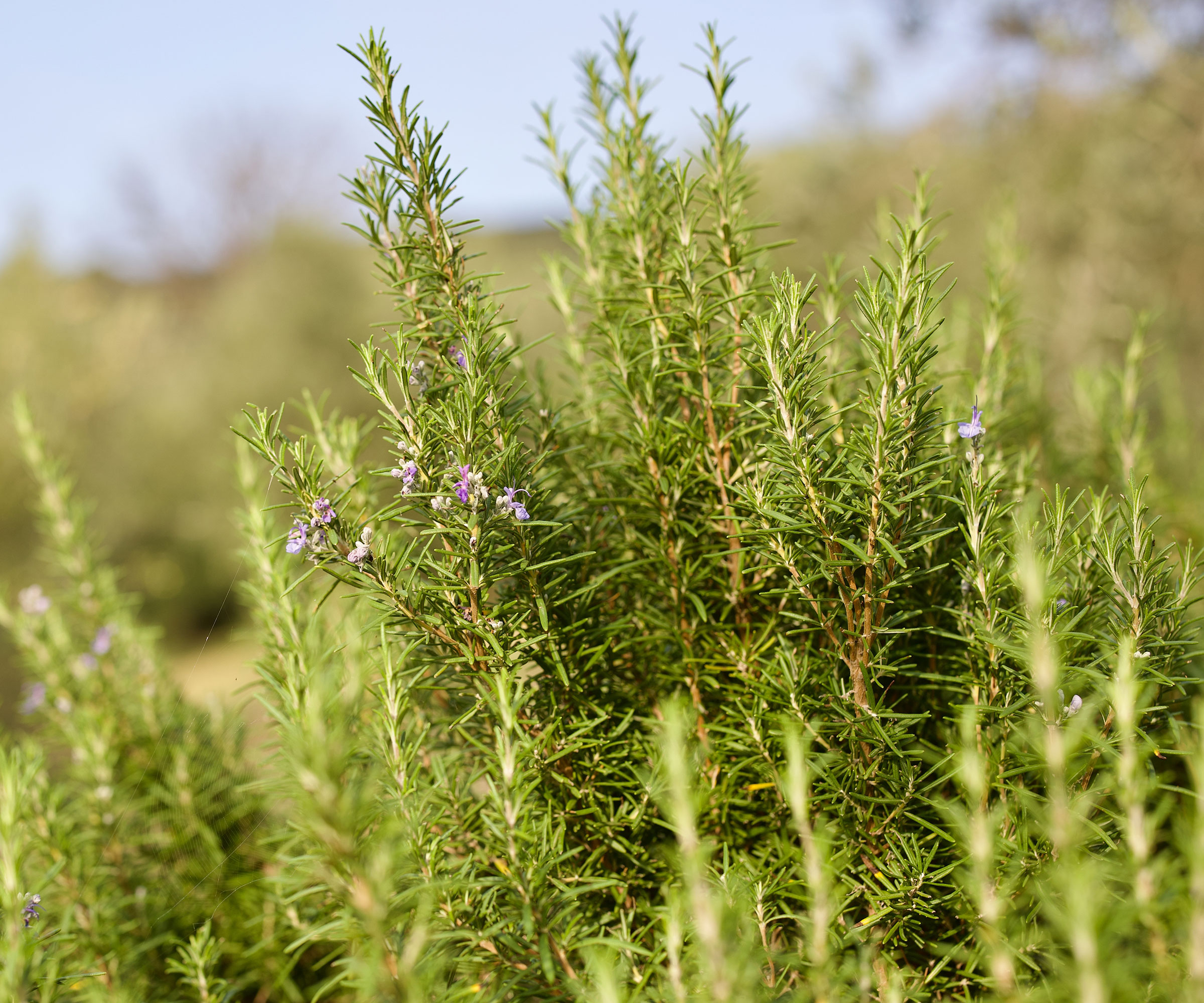
Rosemary, like lavender, has a strong smell. The small blue flowers attract bees, but the aroma deters wasps. For extra potency, try one of the most aromatic varieties, such as Tuscan Blue Rosemary from Nature Hills. Where it’s hardy (zones 8 to 11), you can use rosemary as an evergreen hedge. If your climate is too cold to support the herb year-round, grow rosemary in containers that you can place strategically to keep wasps away.
Rosemary thrives in the heat of summer. It loves full sun and tolerates dry soil and drought once established. The soil must drain very well. Soggy soil can quickly lead to root rot in rosemary.
4. Roman Chamomile
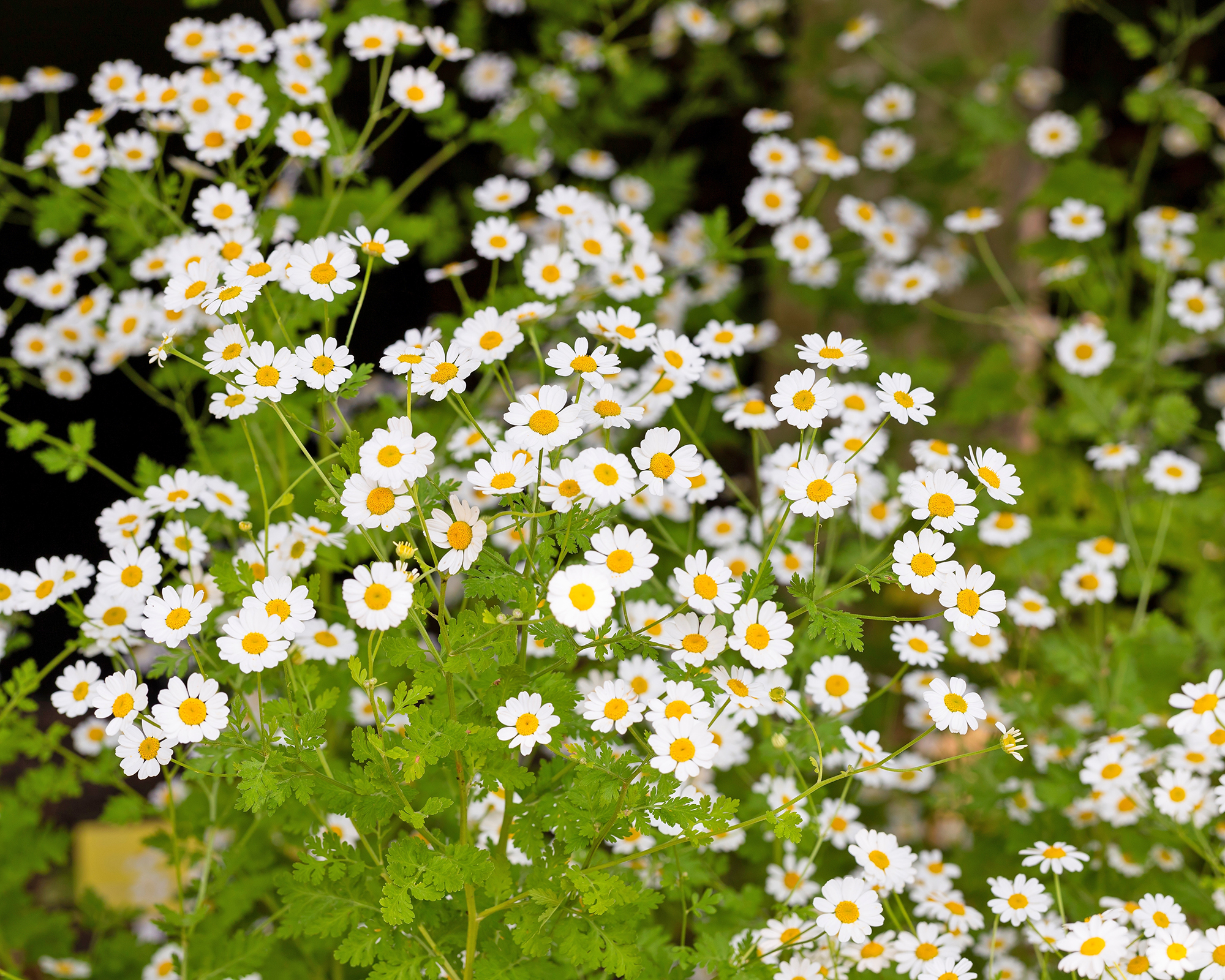
Roman chamomile (Chamaemelum nobile) has a fruitier aroma than German chamomile (Matricaria chamomilla) and is easy to grow from seed. Both are fragrant herbs whose small, daisy-like flowers can be made into tea, but wasps are more likely to be deterred by the particular scent of Roman chamomile, available to buy as seeds from Burpee.
Roman chamomile is a perennial evergreen hardy in zones 4 through 9. It grows lower to the ground than German chamomile and can be used as a low border, ground cover, or rock garden element.
5. Marigolds
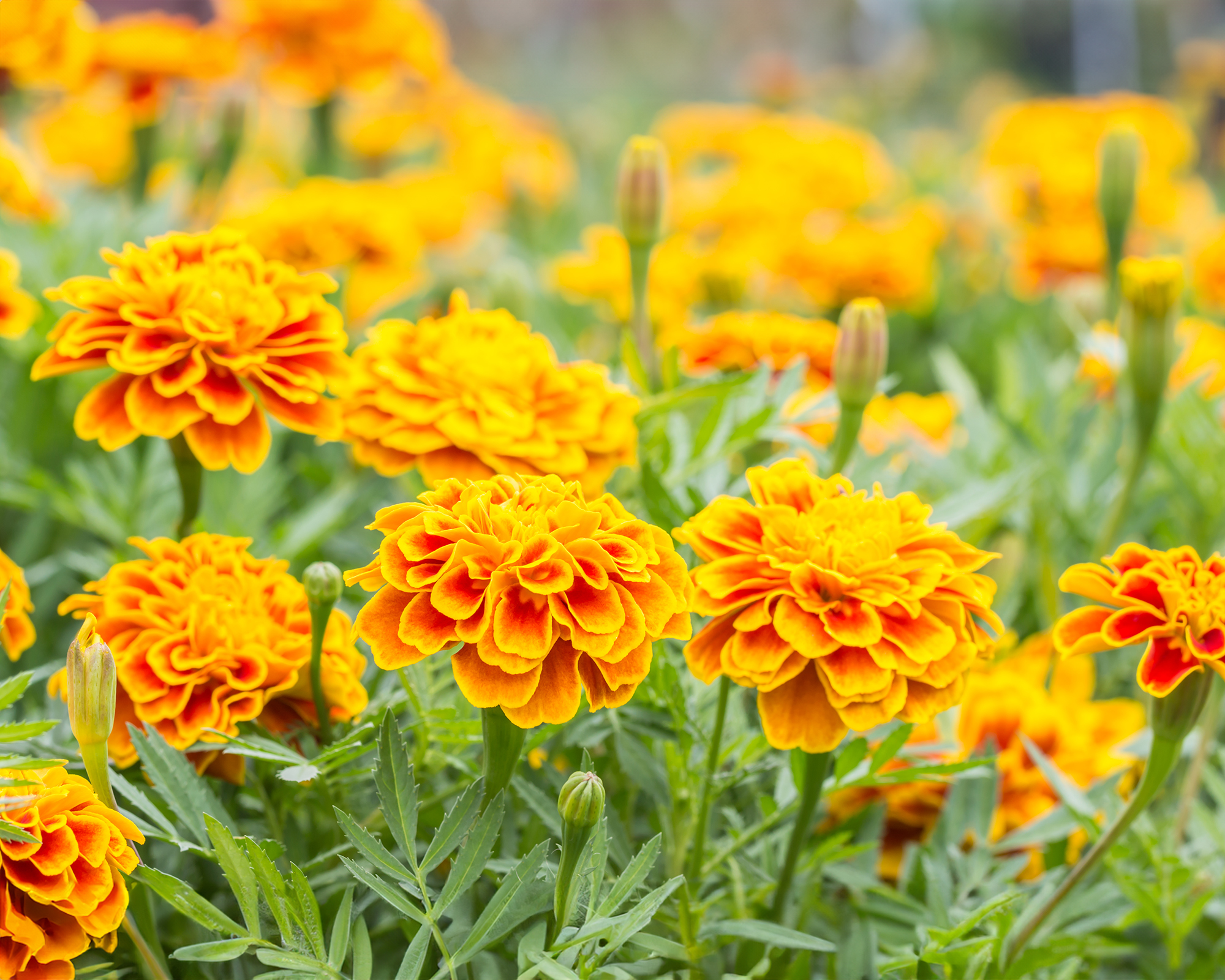
Marigolds are a popular choice for summer annuals. Any gardener who has grown these cheerful little blooms knows how potently fragrant they are. Bees tend to appreciate them, while wasps are more likely to be deterred by the strong smell. As a bonus, marigolds also tend to repel rabbits and deer, so many gardeners plant them around vegetable beds.
Marigolds are easy to grow in summer in nearly every garden. There are so many lovely varieties to choose from, but French marigolds, such as Disco Mix, are best for warding off pests. Give them a sunny spot and soil that drains well but stays consistently moist. Deadhead the flowers as they fade to keep the blooms going all season.
6. Geraniums
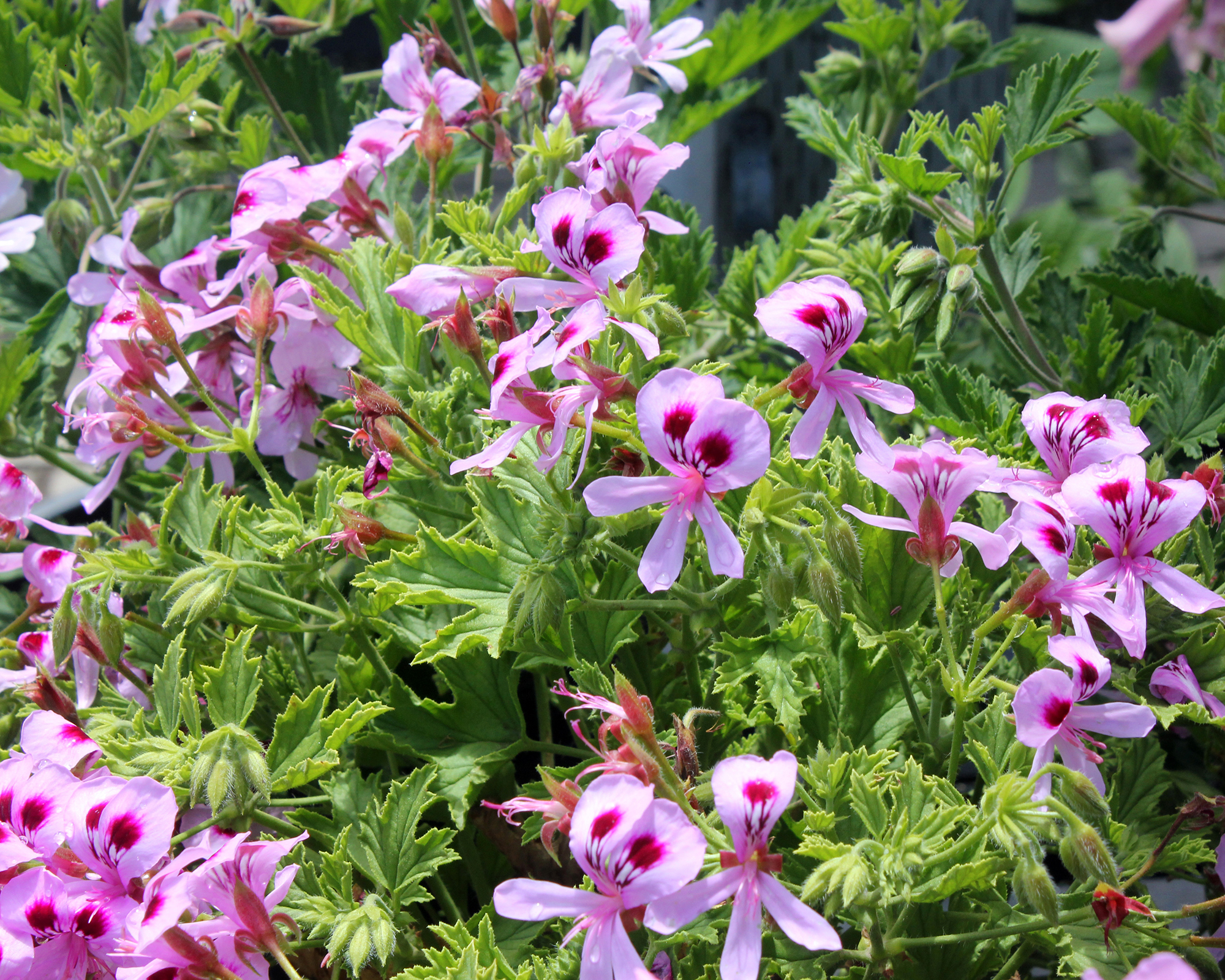
Like marigolds, geraniums have a strong smell that not all insects appreciate. Their colorful flowers attract bees, while the aroma deters wasps. There are many types of geraniums, including flowers with that name that aren’t actually true geraniums. All will help you deter wasps and attract bees, but the best choice is the most fragrant type: scented geraniums.
Scented geraniums include rose, peppermint, apple, and citron-scented types. This Citronella Geranium, from Fast Growing Trees, repels wasps and mosquitoes. The aroma is released when you touch or gently crush the leaves, so do this when outside to keep wasps away.
Scented geraniums are only perennials in the warmest climates. Plan to grow them as summer annuals in well-drained soil, full sun, and plenty of heat.
7. Eucalyptus
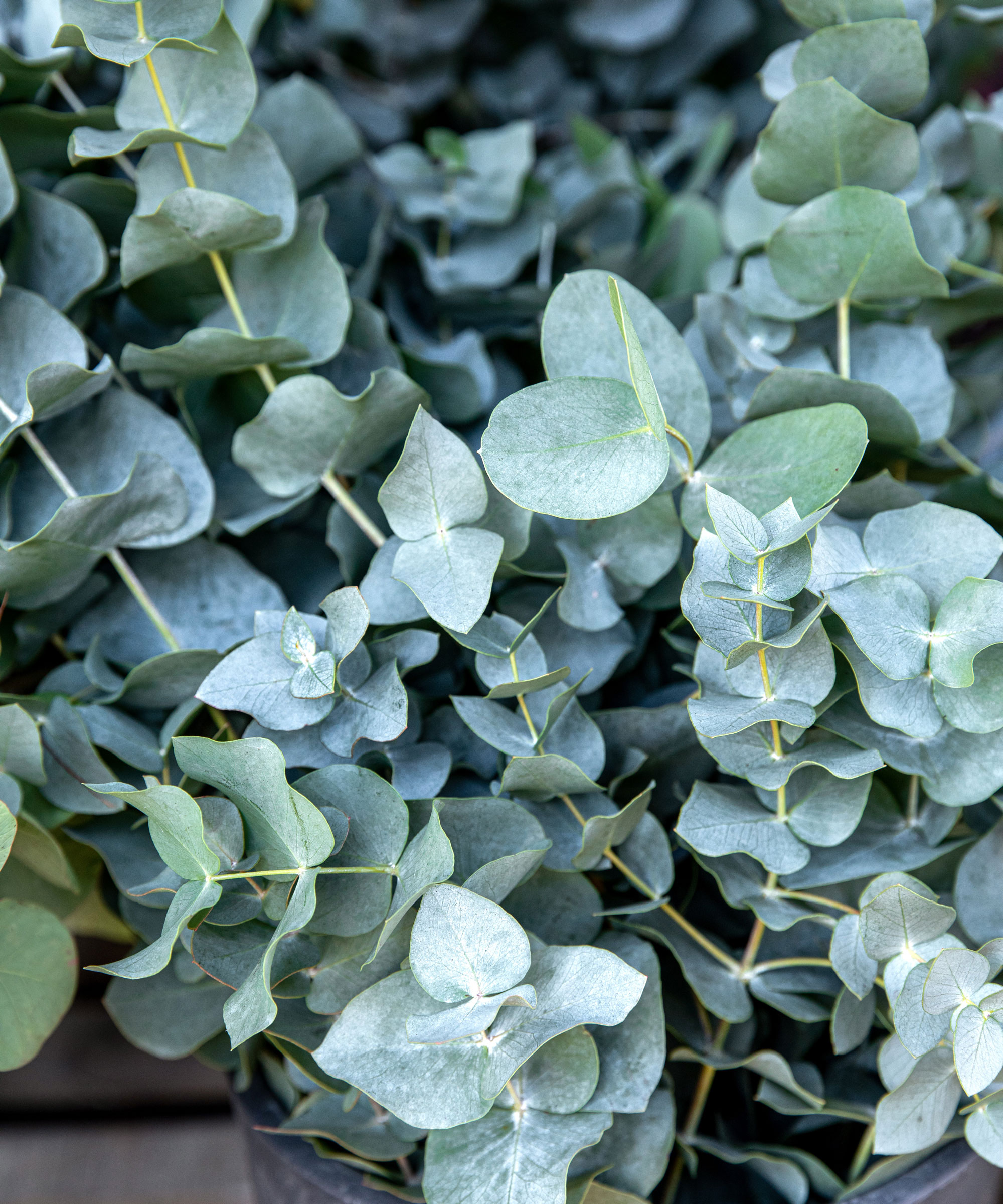
Eucalyptus has a strong and unique scent that wasps generally don’t favor. Bees, however, are important pollinators of eucalyptus trees. Eucalyptus in the garden also repels mosquitoes, making it a great addition to enhance your enjoyment of the garden.
This evergreen tree is hardy in zones 8 through 11 and grows quickly, so you can save money by planting Eucalyptus Seeds. It will grow well in most soils and tolerates drought, but needs full sun. Eucalyptus trees are toxic to humans and pets, so exercise caution when using them in your garden.

Mary Ellen Ellis has been gardening for over 20 years. With degrees in Chemistry and Biology, Mary Ellen's specialties are flowers, native plants, and herbs.